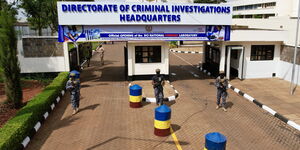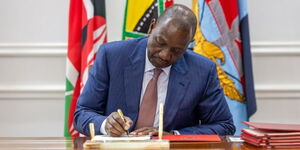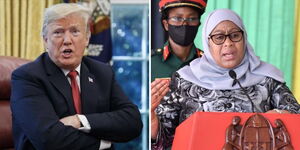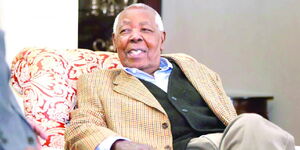Located in the North West of Kenya, Kakuma Refugee camp is home to over 180,000 refugees, and for vicious businessmen, it is a hub for serious fortune. The opportunities it presents has turned a few into multi-millionaires.
Documentaries by BBC and Citizen TV revealed how a few refugees have successfully traversed the perceived harsh conditions and circumstances in the camps to make millions.
Perhaps the most notable business in the camp in the power generating company in the refugee hub.
The Power 'Broker'
Abdi Sofa, a budding entrepreneur is the owner of Kakuma Power, the largest electricity distributor in the camp.
Abdi first came to Kakuma in 1997 when he heard of a generator up for sale. It was owned by an entrepreneur who manufactured ice cream as a treat for the scorching heat. In an auction by the United Nations High Commission for Refugees, he procured a second one. With the two, Kakuma Power was born.
The generators are held in an iron-sheet-walled room with a makeshift cooling system comprising of several drums of water.
While the national grid is just a stone's throw away from the camp, it is not connected - providing a ready and hungry market for Abdi's brainchild.
A routine was created to ensure a steady supply of power within the camp. The generator comes on at 7 a.m. and runs until noon. It is then switched off for three hours to cool off before being powered back on at 3 p.m. and its lights out from 8 p.m. till the following day.
Abdi has employed five people who monitor the operations ensuring equal distribution of power.
"We have an agreement of just Ksh1,500 for a bulb, and a TV set, but it is not standard for everyone. Rates are different for different people
"Those with less are charged less, and we charge those abled slightly more. I have to ensure I am able to pay for the fuel, as well as help the community," he stated.
Abdi's business has led to the birth of many other enterprises, ranging from barbershops to many others.
With the boom in the rise of smartphones, Ahmed Adan Ahmed, a graduate from the Moi Institute of Technology in Nairobi saw an opportunity to make money from internet connectivity.
WiFi on the go
He went back to Kakuma where he set up Sahan Wifi, proving affordable internet access to the camp residents.
According to the BBC, he had over six hundred connected devices and regular clients, over 45 computers, and about 20 routers.
Clients are treated to a rate of Ksh100 a day per device, Ksh300 a week, Ksh800 a month and a monthly fee of Ksh 3000 for a router. Once the period lapses the system promptly disconnects.
"When you use bundles or an adapter you will miss out on the rates. It is best if you pay for a monthly subscription," Noordin Mohammed a resident of the camp stated.
When Abdi's electricity goes off, Ahmed has installed solar power that immediately comes on, keeping internet users online 24/7.
Riding Riches
Mesfin Gatahun, considered the richest in the camp keeps a modest persona that does not give away his vast weath. He is the owner of a grand retail warehouse along with a motorcycle store worth over Ksh7 million as of July 2018.
The Kakuma entrepreneur came to Kenya in 2001 fleeing political unrest in Ethiopia. He started out selling bread, making a thousand shillings a day, but his determination drove him towards more. So he started the shop that has now grown to overshadow any other.
"I don't want big profits, I just want enough, and that is why people come here," Mesfin stated.
He is the sole supplier of motorcycles in the camp that also has several local banks in operation.
Mesfin has become an integral part of the Kakuma community. A few years back, he was arrested by the authorities but a section Turkana community marched to Lodwar in protest securing his release.
Besides the three, several other hardworking individuals are running successful businesses.
Shukrani Hota Biclere, a refuge from the DRC, is a fashion designer. With the skill she had in sewing, she set up her own shop in the camp in 2013.
She focuses on Congolese designs and sells to fellow refugees as well as staffers of the humanitarian organisations within the camp. Complete dresses go for around Ksh2,500 to Ksh3,000 and she confessed to making several hundreds of thousands each month.
Biclere is now the employer of five other people.
A 2016 study of the camp by the International Finance Corporation revealed that there are over 2000 businesses serving the camp.
BBC revealed that Kakuma has an annual economy of Ksh 5.6 billion, and is reportedly the tenth-largest settlement in Kenya.












